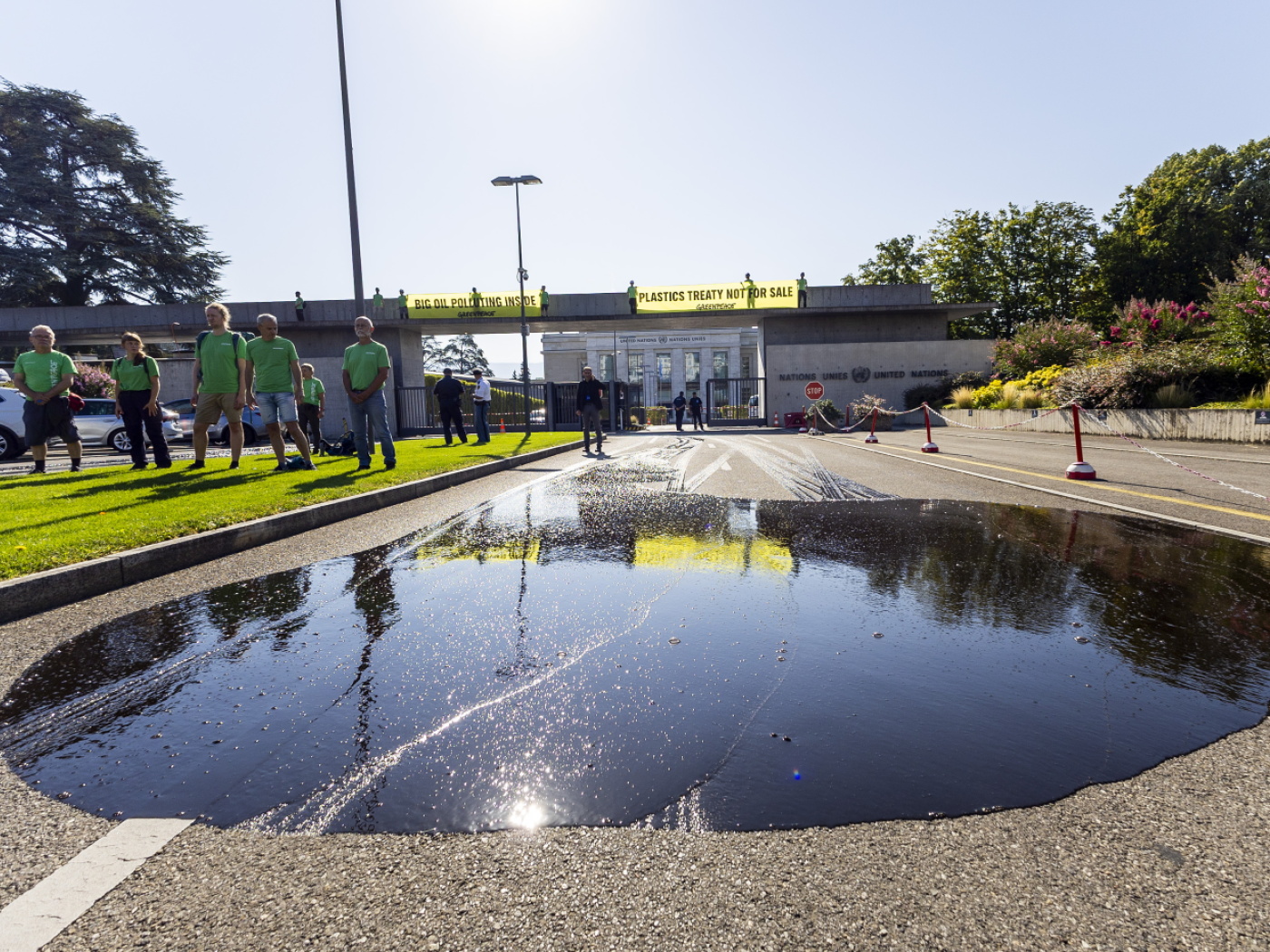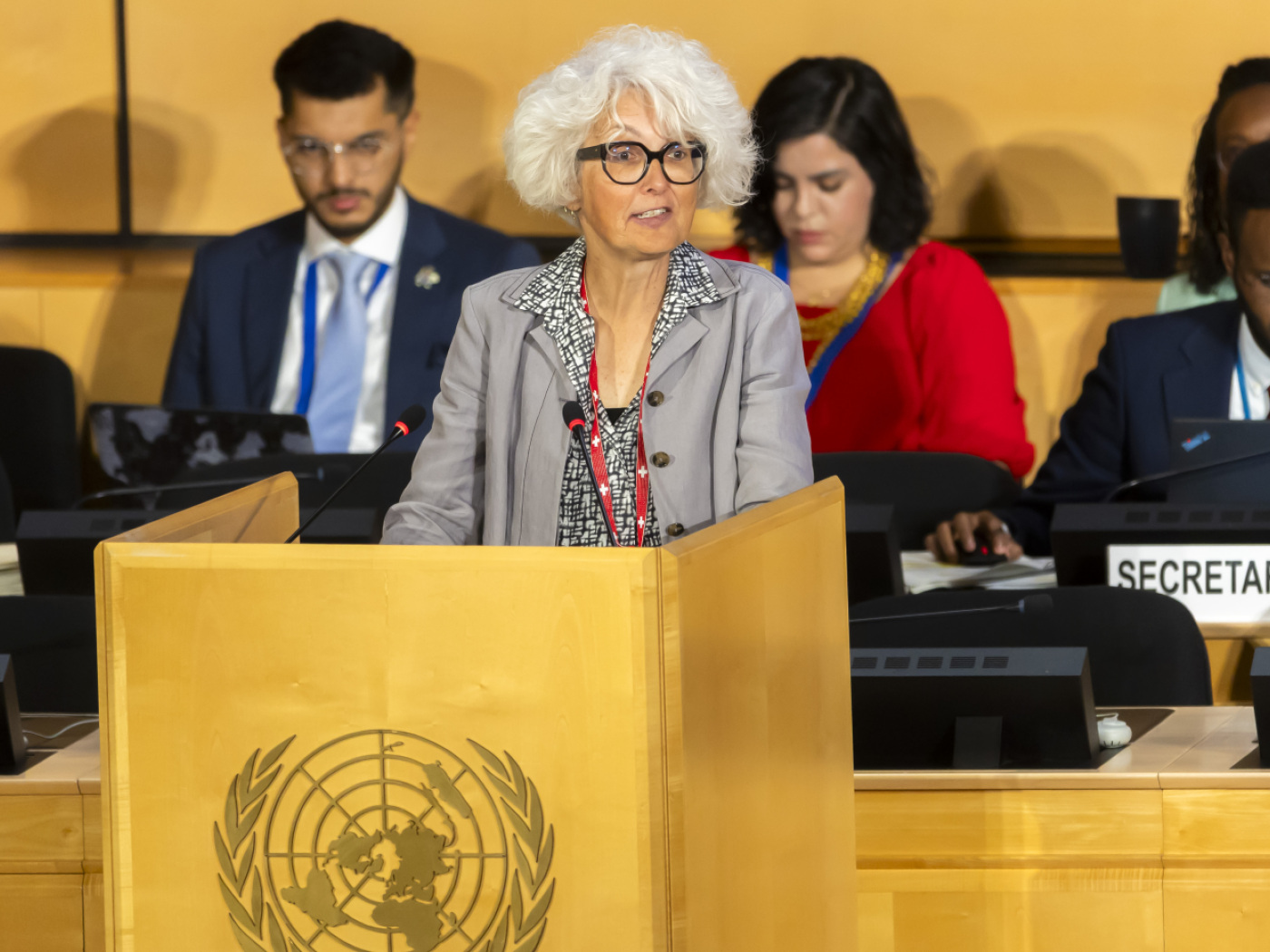
Greenpeace sprays UN entrance in Geneva black during plastics conference

Greenpeace activists sprayed the road access to the Palais des Nations in Geneva with a black substance on Thursday. The NGO wants oil companies, which it accuses of trying to derail negotiations on plastics, to be banned from the discussions.
+Get the most important news from Switzerland in your inbox
Around 15 activists from a dozen countries, including Switzerland, took part in the unauthorised action in front of UN headquarters in Geneva on Thursday morning. Some poured water accompanied by iron oxide and other materials, symbolising an oil trail.
“Be careful, it’s slippery. But it’s edible, it’s not toxic,” one of them told passers-by who were avoiding the black substance. Signs had also been erected to alert onlookers.
Seven activists climbed onto the roof of the security building. The banners they unfurled read “Big oil pollutes indoors” and “The plastics treaty is not for sale”.

More
Switzerland calls for ‘historic’ agreement against plastic pollution
The perimeter was cordoned off by police, forcing people arriving by car or bicycle to retreat to another entrance. The activists were then subjected to the usual identity checks.
Greenpeace accuses oil companies of preventing the more than 170 countries that have been negotiating since Tuesday in Geneva from including a reduction in plastic production in a treaty. According to Joëlle Hérin from Greenpeace Switzerland, the oil and gas lobbies are increasingly present at each session of the talks.
Hundreds of delegates
“We call on the UN to exclude them,” Hérin says. She deplores the fact that civil society is having to fight more and more to attend the discussions. According to one NGO, some 230 delegates from oil and gas companies were present at the previous round of negotiations in South Korea a few months ago, an increase of 12%.
Several organisations submitted a letter to the Executive Director of the United Nations Environment Programme (UNEP), Inger Andersen. The polluting companies responsible for the problem “must not be allowed to prevent the world from solving it”, Hérin said.
According to a diplomatic source from one of the countries in favour of an ambitious agreement, the oil-producing countries have refused to make any progress since Tuesday on the issue of reducing plastic pollution, as they do not wish to see this included in an agreement. They are also questioning the scenario of a list of substances to be banned.
What is your opinion? Join the debate:
Translated from French by DeepL/jdp
*Update August 7: this article previously stated incorrectly that Joëlle Hérin was the head of Greenpeace Switzerland
We select the most relevant news for an international audience and use automatic translation tools to translate them into English. A journalist then reviews the translation for clarity and accuracy before publication.
Providing you with automatically translated news gives us the time to write more in-depth articles. The news stories we select have been written and carefully fact-checked by an external editorial team from news agencies such as Bloomberg or Keystone.
If you have any questions about how we work, write to us at english@swissinfo.ch.

In compliance with the JTI standards
More: SWI swissinfo.ch certified by the Journalism Trust Initiative

























You can find an overview of ongoing debates with our journalists here . Please join us!
If you want to start a conversation about a topic raised in this article or want to report factual errors, email us at english@swissinfo.ch.